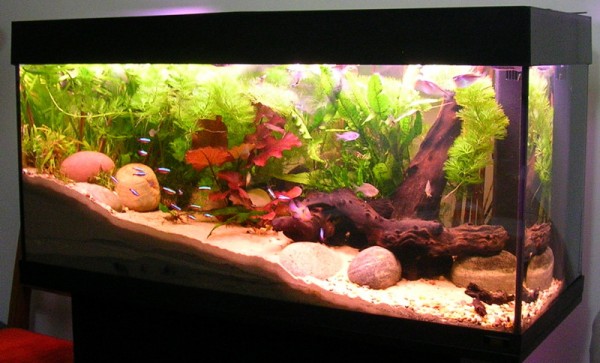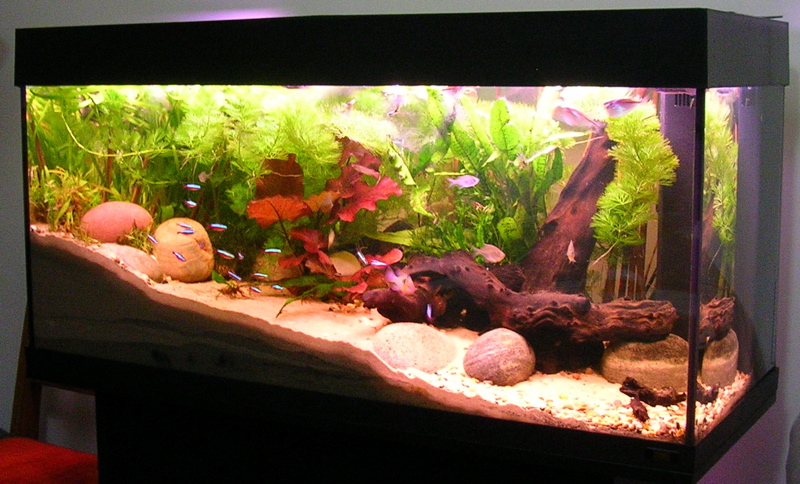Each and every day, the aquarium professionals at Reef-Perfect.co.uk are asked by the public why it is that some homes seem to have the most pristine aquariums on the face of the Earth, while others are unmitigated disasters. The very mention of a fish tank is enough to bring images of tranquillity and serenity to the minds of some and little more than stress and failure to others.
So really – why is it that some never fail to succeed in their fish-keeping ventures, while others struggle to keep things up and running for more than a week?
Well, the simple answer is usually that of effort, as in those in the latter bracket tend to be the individuals and households that simply do not put enough effort into the cause. But at the same time, there’s much to be said for a few important tips, tricks and trade secrets that can benefit any home aquarium venture.

Size is Important
For example, those getting into fish-keeping for the first time will quite often instinctively gravitate toward the very smallest bowls and tanks they can find. Unfortunately, it’s often fair to say that the smaller the tank itself is, the harder it is to maintain it and keep the fish it houses healthy. The reason being that when there is less space there is less water, which means water that’s guaranteed to become dirty, of an inappropriate temperature and generally unhealthy sooner rather than later. Starting out with a tank the size of an ocean liner is of course unnecessary, but do be aware that smaller tanks often need the most work.
Clever Cleaning
One of the most important rules to follow when it comes to aquarium maintenance is that of never under any circumstances using water from the tap to clean any part of the tank’s interior or its ornaments/features. From filter sponges to decorative ceramic touches and really everything else besides, anything you ‘contaminate’ with tap water could pollute the water supply within the tank and do a number on your fish. Instead, take a little of the tank’s water and use this for cleaning ornaments, or use treated tap water.
Bit by Bit
It’s common to assume that cleaning a fish tank means emptying the whole thing out, giving it a good scrub and essentially starting again from scratch. In reality however this is unnecessary, not to mention bad for the health of your fish, as a much better and easier way of going about things is to take a step-by-step approach. Experts advise syphoning out about a quarter of the tanks water using a gravel cleaning attachment as and when required, in order to help maintain the water’s important nutrient balance and make life easier for all involved…especially your fish.
Feed Sparingly
Given the size of a fish’s brain, it’s not difficult to understand how they quite often make bad decisions. One perfect example of this is the way in which so many fish will if given the opportunity eat and eat until it kills them – they simply have no idea when to say no. As such, when it comes to feeding it is of pivotal importance to follow all feeding guidelines to the letter and never assume that just because your fish are still eating means that they are either hungry or in need of food.
Selective Buying
When out and about looking for new fish to add to your collection, it’s in the best interests of you and your fish alike to be extremely selective. Quite simply, if there’s any reason whatsoever to even slightly suspect that any of the fish in the shop’s tank are not 100% fit and healthy, you don’t want to run the risk of bringing any number of diseases home and putting them in your own tank. You can’t always rely on store staff to point out such problems, so be sure to keep your eyes peeled.
Gentle Introductions
Last but not least, no matter how large your tank is or how few fish there may be in it at any one time, it’s still important to only ever introduce new fish in extremely small numbers in any given period of time. The reason being that each new addition to your tank puts an additional strain on the water’s hugely delicate balance of nutrients and thus can impact the health of every other fish. As such, the recommended approach is to be gentle with new introductions and limit the number of fish you introduce when and where possible.

